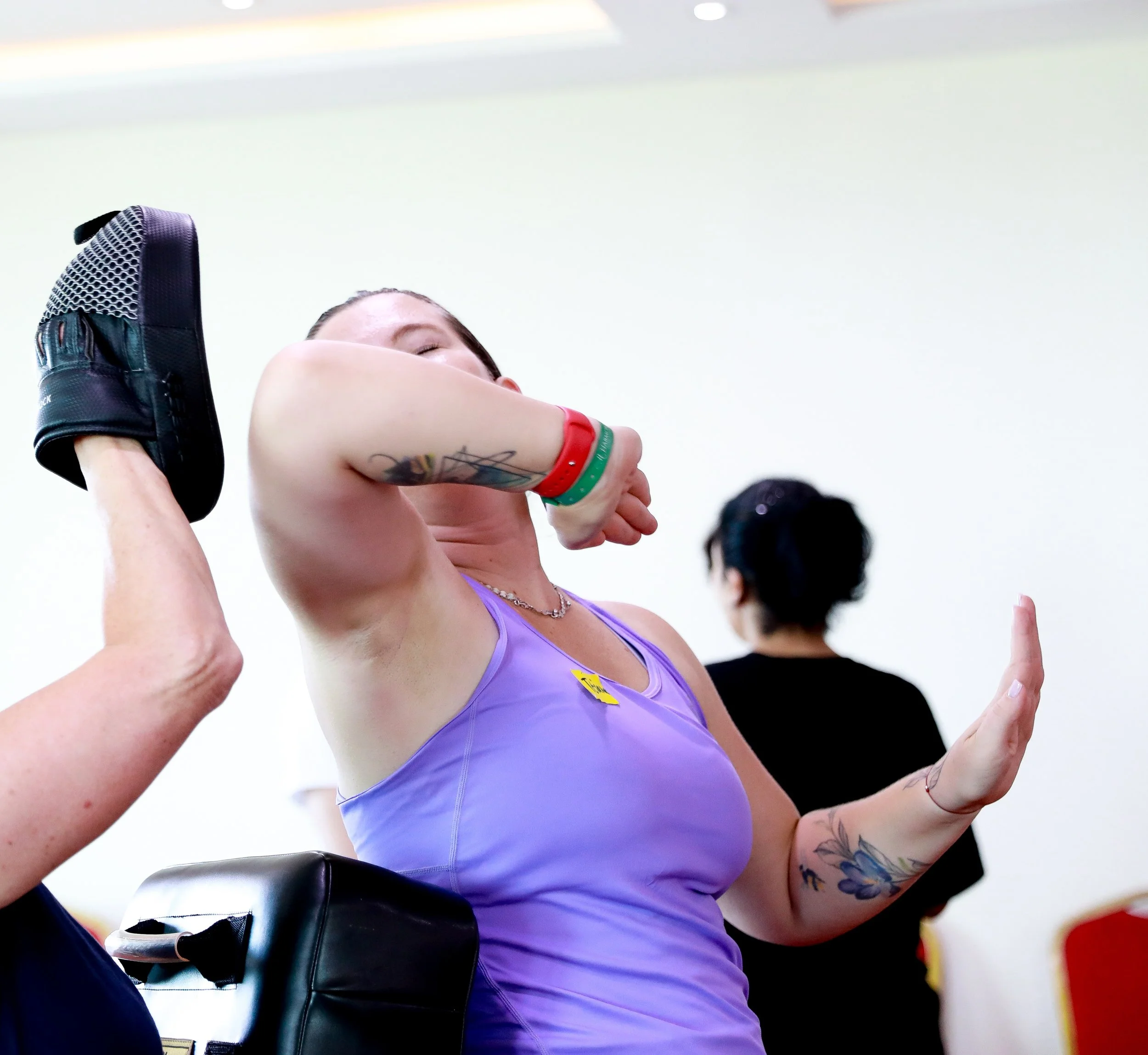Trauma-informed self defence
Tap into your power, build resilience, move, play, and thrive. Join a course or bring us to your community
Programmes
-

Empower yourself
Connect to your inner strength, build the skills and mindset to set boundaries and move with confidence.
-

Empower your group
Partner with us to bring an Empowerment Self Defence programme to your group or community space.
-

Become an instructor
Bring the life-changing benefits of Empowerment Self Defence to your community. Get certified as an instructor.
Partner with us
Create space for the women in your community to tap into their strengths, uphold boundaries, de-escalate conflict, resist violence, build resilience and thrive.
“Women's self defence training is the only prevention strategy with solid evidence of effectiveness at reducing rates of victimisation.”
Hollander, Jocelyn. (2018). Women's self‐defense and sexual assault resistance: The state of the field. Sociology Compass. 12. 10.1111/soc4.12597.
From participants
Sessions like the one we had today are really important because it’s a chance for women to realise they’re not alone with what they’re experiencing.
— December 2024
I could see and sense the huge amount of care and consideration that had been put into creating the day we had together and I'm very thankful, to you both and the whole team.
— March 2024
A very important moment for me in this session was when I learned how to say ‘no.’
— December 2024
FAQs
-
If you want to get comfortable with asserting your needs, taking up space, upholding your boundaries, and practise some power moves, we’re here for you.
We coach in Empowerment Self Defence, a holistic approach to personal safety and violence prevention that addresses the whole spectrum of violence, from micro-aggression to unwanted contact, to physical assault.
If you’re keen to tap into your power, we’ve got you. Our workshops invite you to feel and channel your strength through movement. We also hold space for you to reflect and digest what you’re learning, so it stays in your mind and muscles.
If you’d like to learn in a compassionate, trauma-informed setting, we’re here for you. Our instructors are trained to work with trauma in the body and to meet you where you are.
We see you as the authority on what’s right for your body. We don’t do commands or instructions, we offer invitations and options.
The course is open to women, people living in women’s bodies, and people who identify as women.
If you’d like to talk more about whether this programme is right for you, reach out.
-
Your instructor is Maya D'Amour.
Maya’s style is thoughtful, creative, and collaborative and her workshops are full of compassion and empowerment.
She believes that safety starts with recognising that you deserve to be safe and holds space for you to validate your instincts, feel your boundaries, and build verbal and physical skills to uphold them.
Maya is a certified Empowerment Self Defence (ESD) instructor, trained in trauma informed martial arts programme design with Conscious Combat Club, completed foundational training in Trauma Centre Trauma Sensitive Yoga (TCTSY), holds a 1st Kyu in Shotokan karate, and continually explores ways of drawing on the traditions and techniques of kickboxing, Krav Maga, and Jiu Jitsu.
-
They’re a mix of movement, games, and reflection.
You’ll have options to discharge energy, and options to ground and regulate your nervous system.
Exercises cover a range of physical and verbal boundary setting techniques, focussing on the specific safety challenges that women face.
You’ll come away with a few fast and furious power moves to defuse a situation, and create space for yourself to think and act.
You’ll truly be at the centre of your own experience, as we offer you options and invite you to choose what feels right.
-
This is a great question and important to ask.
For starters, we acknowledge that trauma affects individuals, groups and communities
We ask practitioners about their known triggers and support systems so that we can incorporate accommodations and supports into the design of our activities and group agreement
The first thing we practise, before stances, strikes or releases, is saying 'no' to activities that don't feel right to us. We invite participants to practice saying no in sessions and celebrate when they do
We consider participants to be the authorities on their own experience. The activities we do are invitations not instructions. We invite participants to choose —from a range of variations on each exercise, and to take a pause, practise a grounding technique, or to simply say ‘no’ whenever it feels right to.
We practise nervous system regulation techniques, and invite participants to choose ones that work well for them
We practise interoception and making choices in line with our instincts, energy levels, and body cues





